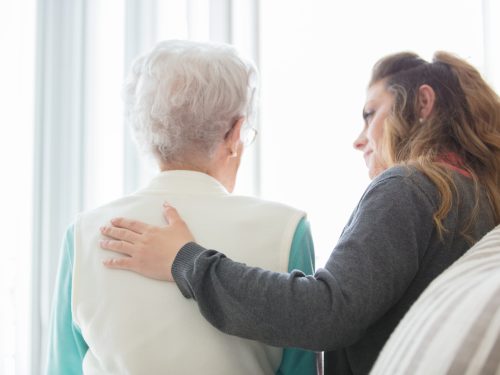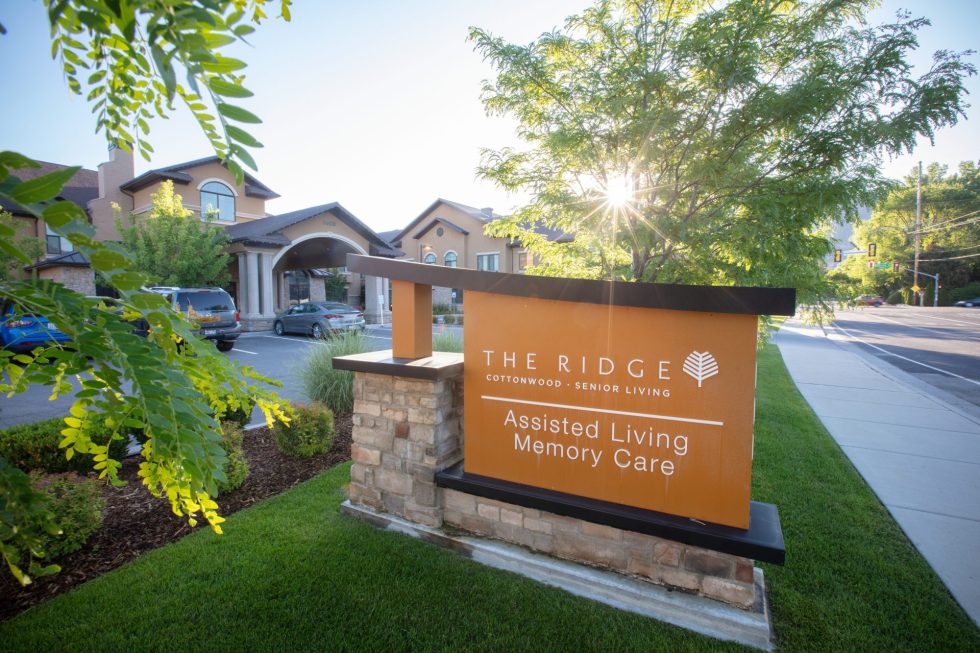8 Signs It’s Time for Memory Care

You’ve wondered if what you’re seeing are signs it’s time for memory care. Because it’s your loved one, it matters. And when a diagnosis of Alzheimer’s Disease or another form of dementia has been made, you want to know what to do — and when to consider memory care to ensure your loved one is safe, well cared for, and supported and empowered to get the most out of daily life. So, is it time for memory care?
Only a professional can accurately diagnose, but learning all you can about dementia’s symptoms can prepare you to help your loved one. Watch for these:
8 Signs Your Loved One May Benefit from Memory Care

Forgetfulness
Everybody’s forgetful once in a while. But when your loved one can’t hang onto information they’ve just learned or repeatedly asks the same question, they might be developing short-term memory loss that points to a larger issue. Chronic forgetfulness is a concern to watch. Knowing the short-term memory challenges of residents, memory care communities offer support to help keep them oriented to the moment — and comfortable when they’re not.Withdrawal
When your loved one withdraws from organizations, friendships, clubs or interest groups, it might be due to the stress and anxiety caused by the dementia’s onset. Isolation can bring on loneliness, which only increases the risk and rate of cognitive decline. Note: Memory care communities are designed to routinely engage residents in socialization activities.Vision Loss
Have you noticed your loved one struggling with depth perception, color identification, reading or driving? Check with an eye doctor to rule out glaucoma and cataracts first and then be aware that vision loss can be a signal that dementia is at hand.Household Hazards
In the early stages of dementia, older adults living on their own may find it increasingly difficult to tend to daily activities — such as cooking, cleaning and personal hygiene — resulting in circumstances that may become dangerous. Unsanitary bathrooms and kitchens, tripping hazards, mismanaged appliances — all these can pose serious risks. When you observe constant neglect of household or personal well-being, you may be seeing evidence of advancing dementia. Memory care communities, with teams devoted to keeping living spaces clean and safe, are designed around the special needs of residents who have dementia.Missed Medication
Is your loved one taking medications as prescribed? If not, it can be a signal that it’s time for a memory care community, where professional team members can help them manage their medications properly.
Wandering
Memory loss often causes older adults to become confused about where they are. They may not realize they’re at home, for example, and repeatedly try to exit the premises. At large and on their own, a senior with dementia is at serious risk. But securing the house and monitoring their activity 24/7 can challenge the most fastidious adult child caregiver. Solving this problem is the memory care community, where the setting provides comfort and safety, and the doors are locked and monitored around the clock.Outbursts
Mood shifts and emotional outbursts — sometimes loud, disruptive and even violent — are signs of dementia’s progression. And while these behaviors can strain family caregivers’ resources, memory care professionals are trained to handle these symptoms, redirecting and re-engaging and reducing the risks of injury and distress for caregivers and residents alike.Caregiver Burnout
Taking care of a loved one who has Alzheimer’s or another form of dementia can exhaust adult children’s caregiving reserves. And with routine family needs added to their responsibilities, the burdens can overwhelm. While you try as you might to put a happy face on your frustrations, your loved one can sense the growing tension and react with unpredictable unpleasantness. When your patience runs out, a professional caregiver is the right choice — for family caregivers and for their loved ones.
The Ridge knows the signs it’s time for memory care.
When your loved one’s behavior prompts you to wonder about memory care, signs and symptoms of memory loss are critically important. We can help. Our memory care team stands ready to answer all your questions and can help you decide when to consider memory care for your loved one. We also provide dementia caregiver support groups — convening monthly — in Denver, CO, Holladay, UT and Salt Lake City, UT.
The Ridge Senior Living communities offer genuine care, well-trained memory care professionals and a proven program for those who have Alzheimer’s or other forms of dementia. When your question — is it time for memory care? — demands an answer because it’s your loved one, we’re here with open arms and a plan for peace of mind. Simply contact us to begin the conversation.








